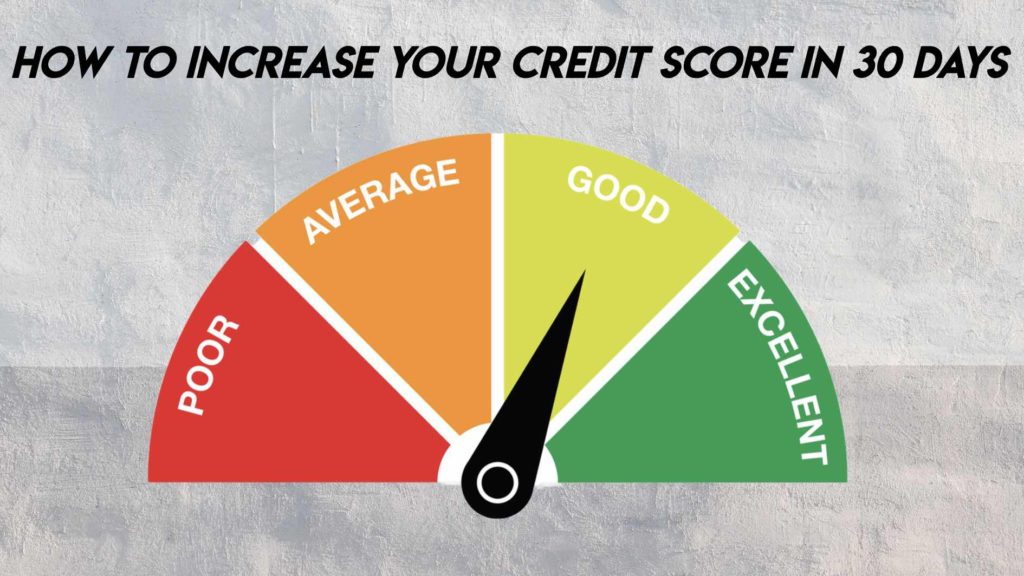by Daniel | Last Updated Feb 6th, 2022

We may earn a commission for purchases using our links, at no cost to you.
If you’re interested in building our credit score but you’re not sure where to start, then read on to find out why it’s so important to have a good credit score, and how it can benefit you in the long run.
Why Do You Need Good Credit?
Having good credit is essential if you want to be able to secure lower interest rates when you are applying for a large loan such as a home loan or car loan.
And this can make a huge difference over the lifetime on a loan, it can literally save you tens of thousands of dollars just by securing an interest rate that is .5% lower.
Another benefit of having a good credit score is that you will have access to a lot more lenders as they will be more likely to want to do business with you.
And this can work in your favor as you will be able to shop around and choose the best rate for you and what the terms of the loan might be.
What Is The Average Credit Score In The US?
Since 2009 the average credit score in the United States has been on a continuous uptrend and has dramatically improved.
The average score in 2009 was 686, whereas in 2020 the average credit score was 711, which is an all-time high.
So as an example, let’s take a look at what the numbers of a FICO credit score actually mean.
| Credit Score | Rating |
| 300 to 579 | Very poor |
| 580 to 669 | Fair |
| 670 to 739 | Good |
| 740 to 799 | Very Good |
| 800 to 850 | Exceptional |
How Long Does It Take To Improve Your Credit Score?
Now when it comes to the time it takes to improve your credit score there are many factors that come into play.
The first thing to take into account is how long you have actually had credit.
Most people who are just starting out and are trying to establish a good credit score will find it a lot easier and quicker to build their credit score than someone who has had an established credit file for quite some time.
So if you are just starting out, a few things you will need to do to positively affect your credit score would be to open a new credit card and make sure you pay off any owing money before the due date.
If you are more established with your credit rating and have recently had a negative impact on your credit score such as a late payment can take a lot longer to regain and increase your credit score.
And this is why it is so important to make sure you make all payments to any money owing as soon as you can, whether it be for your credit card, student loan, or mortgage because negative information related to your credit score can stay on your file for up to 10 years.
So let’s take a deeper look into a few ways you can start to build your credit score.
Become An Authorized User
Basically, this is when you ask a friend or family member if you can be added to one of their existing credit card accounts as an authorized user.
If you do decide to do this it is important to make sure that the account has a very good if not perfect payment history, and that the friend or family member has maintained a low debt-to-income ratio on the account.
And finally, it is important that the account has been established for a fair amount of time.
Now it is worth knowing that as an authorized user only the primary account holder is legally responsible for the credit repayments.
And as this situation can be risky for the primary account holder it is possible that they just put your name on the account as an authorized user but don’t give you a credit card or any account information.
And this will still benefit you both, it can protect them from having any unwanted bills to pay of their credit card, and as long as the primary cardholder continues to maintain their credit score by making payments and keeping their credit utilization low, you will get the benefit of piggybacking off their account and actually building your credit history.
Something To Consider With This Method
Just keep in mind that if the primary account holder for any reason decides not to pay back their credit on time or their credit utilization becomes very high, this will affect your credit score negatively, as well as theirs.
This is why you should consider establishing your own account and managing it responsibly, as it will help build your credit score, and eventually give you the option of not relying on someone else.
Avoid Missing Payments
Now, this is one of the most important things you can do to build your credit score and to maintain it.
As I mentioned earlier, any negative information that is related to your credit score such as late payments or bankruptcy can stay on your file for up to 10 years, and rebuilding credit as a result of these situations can take a long time.
So always make sure that you pay off any owing credit as soon as you possibly can and avoid having any late payments if possible.
One way to counter the issue of late payments is to set up automatic payments that match the minimum amount due, just make sure that you actually have available money in your bank account to cover the payments as it is best to avoid an overdraft of your bank account.
Understand What Credit Utilization Is
This is a major factor and has a large influence on determining what your credit score will be.
Credit utilization is relatively easy to understand.
It’s basically an indicator of what percentage of your credit limit you are using.
For example, if you have a credit limit of $10,000 on your credit card and your balance is $4,000 then your credit utilization for this credit card is 40%.
So keeping this number as low as possible is extremely important, anything below 30% is desirable, because if your utilization is too high then it can indicate to the lender that you may be overextended on your payments and may find it difficult to repay the money you have borrowed.
A few good ways to keep your credit utilization low are:
Try to make multiple payments throughout the month, and by doing this you will effectively lower your credit utilization and therefore increase your credit score, I’ve been doing this with my credit cards long time and my credit score has always been high as a result.
If you have multiple credit cards, try to make smaller payments on each of them to keep the credit utilization low.
Another thing you can do is to set up balance alerts for your credit card, this will notify you if go past a pre-set limit and help you stay on track.
Avoid Making Too Many Credit Inquiries
So for this section, there are two types of credit inquiries, a hard inquiry, and a soft inquiry.
With a soft inquiry, it is unlikely that it will affect your credit score as they are not attached to a specific application for credit.
Examples of a soft inquiry would be when you check your own credit, a mortgage lender checks your credit to pre-approve you for a loan that you haven’t submitted a full application for, or if you authorize a potential employer to check your credit report.
As long as there is not a new application for credit made, it will be a soft inquiry.
Now a hard inquiry is when you are applying for a new line of credit, whether it be for a mortgage, auto loan, or new credit card.
Basically what happens is that a creditor will request to see your credit file, and this will help them to determine if you pose any risk as a borrower.
Whenever you make a hard inquiry it will show up on your credit report and it will stay there for up to 2 years.
So, lenders will be able to see any inquiries that have been made during this time period.
Hard inquiries will also negatively affect your credit score in the short term which is usually just a few months.
Generally speaking, most hard inquiries account for about 10% of your credit score, so they are not the end world, but they can add up if you have too many.
Apply For A Higher Credit Limit
Another way to help increase your credit score would be to ask your credit card issuer if they can increase your credit card limit.
And by doing this you can effectively lower your utilization.
Just a few things to keep in mind if you chose to do this.
If you have just opened a new credit card it’s better not to ask for an increase as it is unlikely that your lender will approve your request.
You also need to be a bit cautious when asking for your credit card limit to be increased as it can result in a hard inquiry which can potentially affect your credit report negatively.
Just ask the lender if it’s possible to make a small increase without the need for a hard inquiry and hopefully they will just approve it.
If for any reason the lender does ever asks for more information related to a credit increase it is probably best to decline to request as it’s not worth having a hard inquiry on your credit file if possible.
Anyway, that’s all I have for now, but I’d love to know If you have any other methods that you use to increase your credit score.
